Your Cart is Empty
🙏 La livraison est offerte sur tous vos achats ! 🙏
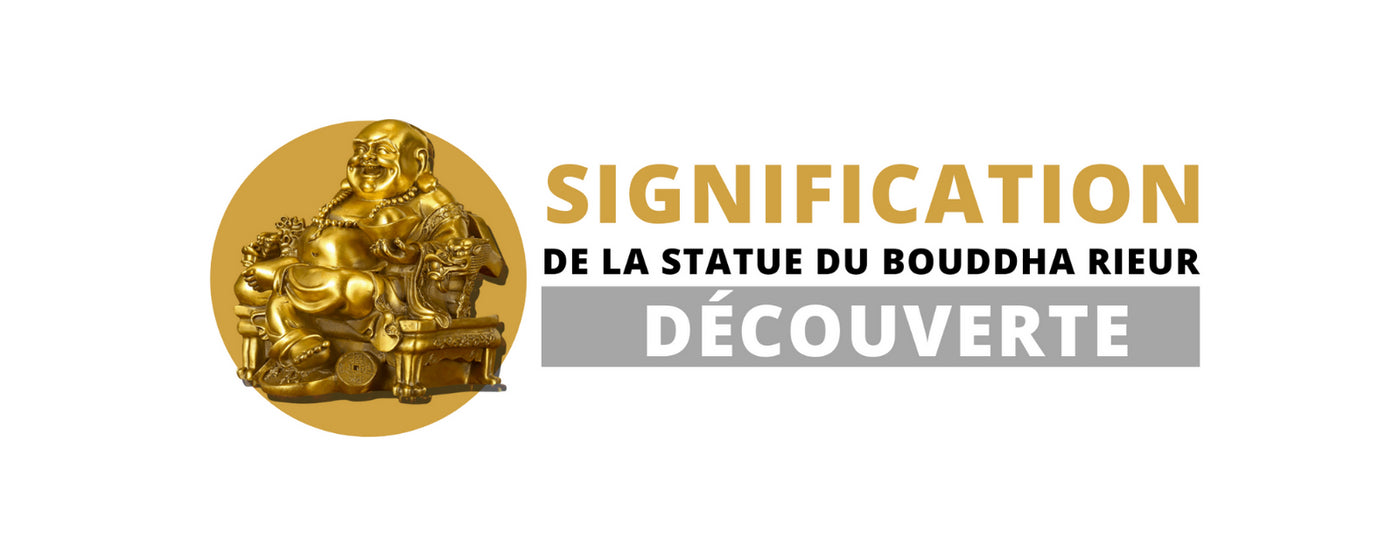
The Laughing Buddha depicted in the Laughing Buddha statue used in feng shui applications is not really the Buddha. The character is believed to be a well-known monk from the Liang dynasty (502-557).
The proper name of this statue is Hotei. This happy, fat-bellied monk is a symbol of luck and fortune and is used as an auspicious symbol in feng shui.
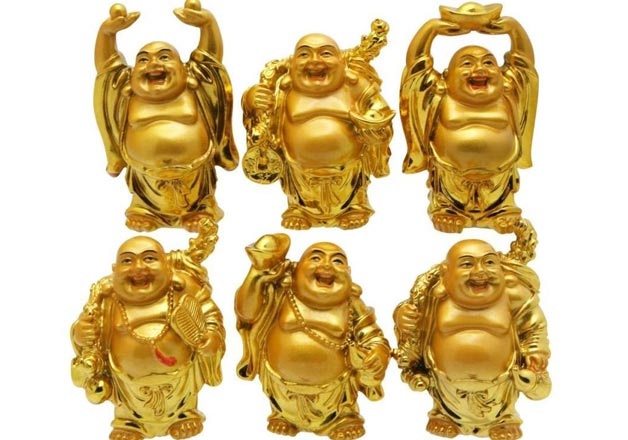
The Laughing Buddha, as we all know, brings luck, contentment and abundance in everyone's life. It depicts the fullness of what one wishes, whether it be wealth, happiness or satisfaction.
The Laughing Buddha, as we all know, brings good luck, contentment and abundance in everyone's life. It portrays the fullness of whatever one wishes, whether it be wealth, happiness, or satisfaction.
Usually depicted as a bald, laughing man with a coarse belly and openly exposed, the Laughing Buddha or Heavenly Buddha is better known as Hotei or Pu-Tai.
His appearance is said to have originated from a Zen Buddhist monk who lived over 1000 years ago. His prominent belly and cheerful smile earned him this name.
However, a symbol of Feng Shui, the laughing Buddha has great importance in our life. Most of us strongly believe that keeping it in a particular direction responds to distinct desires. It is therefore important to know in which direction it should be maintained and what type of Buddha should be used by individuals.

It symbolizes good fortune from heaven. It also brings good fortune and positive energies.
The bowl represents the life of a monk. It is associated with the renunciation of material goods and the achievement of enlightenment.
This one symbolizes happiness and joy. It is said that waving the fan of the Buddha sculpture represents the banishment of unrest.
The Buddha carrying bag symbolizes the traveler. According to one version, the bag means that he collects people's sadness and misfortunes and puts them in his bag. Another version is that the bag symbolizes wealth and good fortune.
The one who wears beads is considered a monk representing the practice of meditation. The pearls also symbolize the "pearls of wisdom".
While the ball is considered a ball of wealth and is said to bring wealth and prosperity.
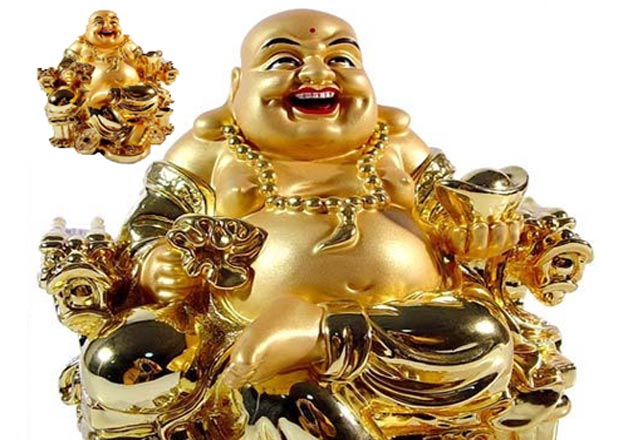
1) The sitting Buddha posture is considered to be that of love and it symbolizes the balance of thoughts and tranquility.
2) The standing Buddha symbolizes wealth and happiness.
3) The Buddha sitting on a large gold nugget and ready to give a smaller gold nugget is a symbol of good luck.
4) The Buddha with his fan-shaped hat on his head represents joy and good fortune.
5) Buddha holding a block of gold with his hands in an upright position represents abundance of wealth and good fortune.
6) Buddha with the fan in one hand and the gourd in the other brings blessings and good health.
7) Buddha carrying a bag of gold on his back symbolizes prosperity.
8) Buddha carrying a bag of blessings on the right shoulder and a fan on the left protects during long trips.
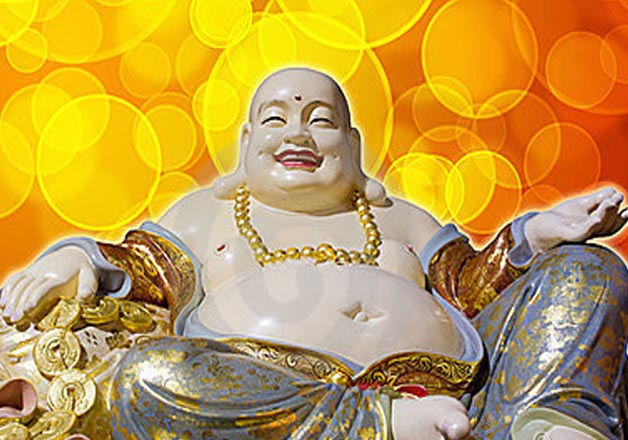
1) Place a Buddha Statue at Home to Bring Contentment and Serenity Buddha's birthday falls on May 8 and it is auspicious that a candle will be lit on his birthday. It is said to fulfill desires.
2) Placement of the Buddha in the eastern sector (Feng Shui Bagua formula) or in a direction where it could be seen by all family members when they are seated in the living room or in the main room is considered as a place to resolve disputes between family members.
3) If the Buddha statue is placed facing the direction of his Sheng Chi (Feng Shui Kua formula), we says that it brings wealth, that it helps personal development, well-being and victory. It helps to achieve its goals.
4) The Laughing Buddha exposed in the southeast direction of the main hall, dining room or bedroom of the house brings exceptional luck and increased income to the house. family.
5) Placing the Buddha in his desk helps to have a clear mind, reduces tension and eliminates the effect of enemies.
6) Keeping Buddha on his desk increases luck and meets aspirations.
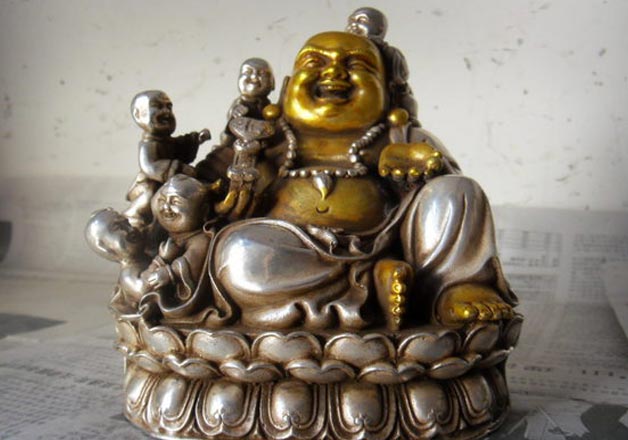
1) The Laughing Buddha is revered in Buddhism and Feng Shui and therefore should be treated with respect. It should not be placed in the kitchen, bathroom or on the floor.
2) It should be placed at a height at least equal to eye level.
3) It should not be placed near electrical equipment and engine parts.
4) It should not be placed on a television either.
5) It should not be placed on the floor either.
6 ) It should preferably be placed at a height of at least 30 '' and facing the main door.
7) If it is not possible to place the Buddha statue facing the main door, it should should be placed on a side or corner table that faces the main door.
Comments will be approved before showing up.